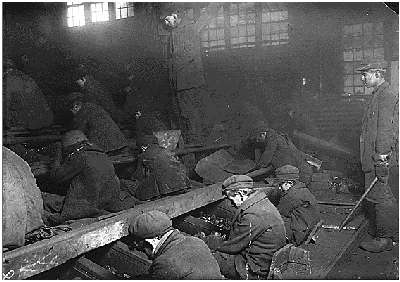jpx7
Very Flirtatious, but Doubts What Love Is.
So, this is about a month old, but I just got around to reading it, and I think it's fairly perspicacious:
Mistaking capitalism for a blueprint as to how to build a society strikes me as a really dangerous idea in a bad way. Capitalism is a remarkable engine again for producing wealth. It's a great tool to have in your toolbox if you're trying to build a society and have that society advance. You wouldn't want to go forward at this point without it. But it's not a blueprint for how to build the just society. There are other metrics besides that quarterly profit report.
The idea that the market will solve such things as environmental concerns, as our racial divides, as our class distinctions, our problems with educating and incorporating one generation of workers into the economy after the other when that economy is changing; the idea that the market is going to heed all of the human concerns and still maximise profit is juvenile. It's a juvenile notion and it's still being argued in my country passionately and we're going down the tubes. And it terrifies me because I'm astonished at how comfortable we are in absolving ourselves of what is basically a moral choice. Are we all in this together or are we all not?
[...]
So I'm astonished that at this late date I'm standing here and saying we might want to go back for this guy Marx that we were laughing at, if not for his prescriptions, then at least for his depiction of what is possible if you don't mitigate the authority of capitalism, if you don't embrace some other values for human endeavour.
[...]
So how does it get better? In 1932, it got better because they dealt the cards again and there was a communal logic that said nobody's going to get left behind. We're going to figure this out. We're going to get the banks open. From the depths of that depression a social compact was made between worker, between labour and capital that actually allowed people to have some hope.
We're either going to do that in some practical way when things get bad enough or we're going to keep going the way we're going, at which point there's going to be enough people standing on the outside of this mess that somebody's going to pick up a brick, because you know when people get to the end there's always the brick. I hope we go for the first option but I'm losing faith.
The other thing that was there in 1932 that isn't there now is that some element of the popular will could be expressed through the electoral process in my country.
The last job of capitalism – having won all the battles against labour, having acquired the ultimate authority, almost the ultimate moral authority over what's a good idea or what's not, or what's valued and what's not – the last journey for capital in my country has been to buy the electoral process, the one venue for reform that remained to Americans.

